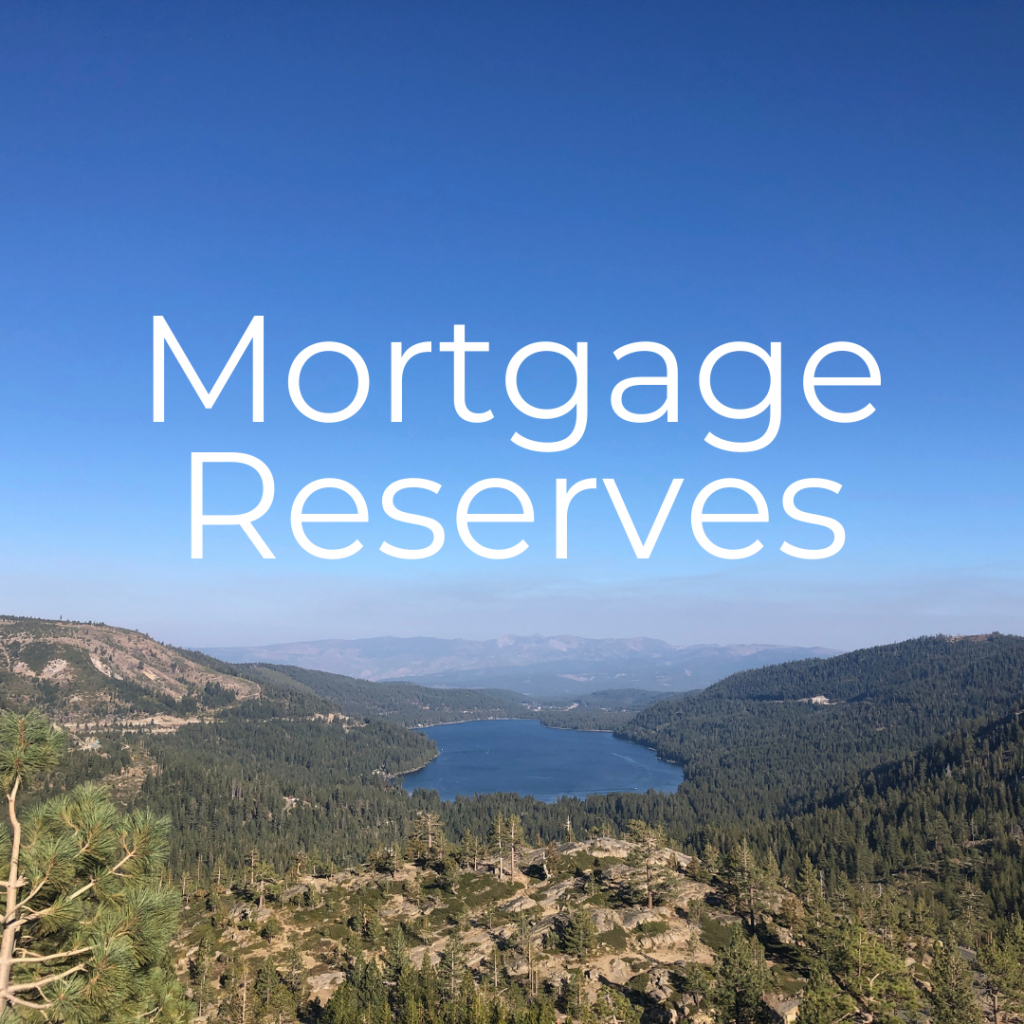Mortgage reserves are savings balances that remain after you close on your home purchase.
Also known as emergency funds, in the event of substantial income loss or unemployment, reserves assure mortgage lenders that you will be in a position to continue making your scheduled mortgage payments. Essentially, they are cash funds that you can utilize in the event you need to.
Mortgage reserves are measured in terms of months and are housing costs that borrowers can cover with their savings. For example, if you have $30,000 in savings after completing a home purchase, and your housing costs including (principal, interest, taxes, and insurance) are $4,500 per month, you have about 7 months in reserves.
In my experience, most buyers don’t need mortgage reserves to purchase a home. If you have stable finances and a strong loan application, you probably don’t need them.
Although having to show reserves is uncommon during the loan application process, it is beneficial to have them especially if you have imperfect credit.
When dealing with conventional loans, the majority of banks require at least two months of reserves.
*Note: There are mortgage programs that mandate borrowers to show at least six to twelve months of reserves. This is common for people who are self-employed as well as borrowers buying rental properties.
Lenders for the most part prefer you to have reserves in the form of cash after making your down payment. In the event you don’t have reserves in the form of cash, you may be able to utilize alternatives such as:
- trust accounts
- stocks or bonds
- checking or savings accounts
- CD’s (certificates/deposits)
- cash value of a life insurance policy
- money in a 401K, IRA, or other retirement savings account
- borrowed money
- real estate equity
Reserves required by different loan programs
- Conventional loans: zero to six months of reserves depending on your credit score, debt to income ratio, and loan to value ratio.
- FHA Loans: One to two unit housing does not require mortgage reserves. Three to four unit housing usually requires reserves.
- VA Loans: Typically VA loans don’t require reserves unless you are financing a three or four unit property.
- USDA Loans: No reserves required
Reserves required by property type
- Owner-occupied/primary residence homes: Typically two months of reserves are required. Keep in mind that some lenders may ask for up to six months of reserves.
- Second-home/vacation homes: Usually a lender will require two to four months of reserves and some lenders may require larger reserves.
- Investment properties: It’s common to need six months or more of reserves. This really comes down to your lender’s particular guidelines and your credit profile.
If you have any questions just reach out to me. I’d be happy to discuss all of this with you.
Torben Yjord-Jackson – Realtor
EXP Realty of CA, Inc.
CalBRE 02050831
📲(415) 259-8088
💻www.thriveinmarin.com



